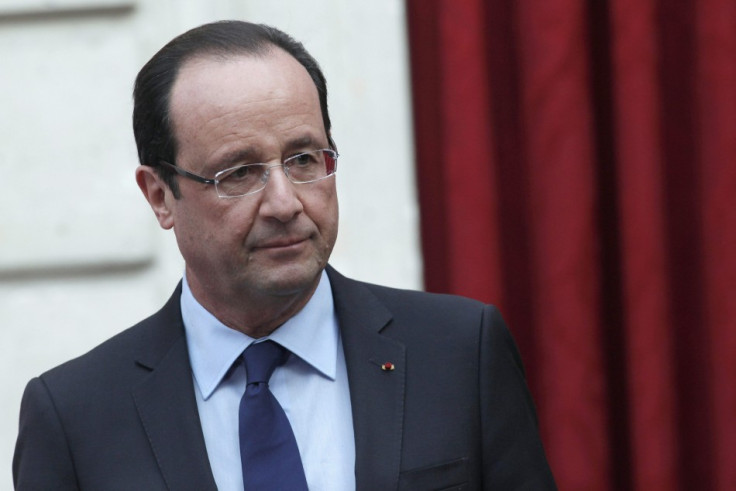France's Constitutional Council Rejects 75% Millionaire Tax Rate
Proposal prompted actor Gerard Depardieu to flee country

France's highest constitutional authority has turned down a proposal to levy a 75 percent income tax rate on the rich in a setback to Socialist President Francois Hollande's move to make the affluent contribute more to the public deficit reduction.
The Constitutional Council of France, made up of nine judges and three former presidents, was of the opinion that the tax rate on annual income above €1m (£817,000) was unfair and excessive in the way it would be applied to different households.
The Council, which is a politically independent body that rules on whether laws, elections and referenda are constitutional, pointed out that the tax would hit a married couple where one partner earned above a million euros, but it would not affect a couple where each earned just under a million euros.
The proposal, which the Council is said to have felt was too much based on ideology, was the core point of Hollande's election campaign.
In France, the highest tax rate is 45 percent as of now, applicable to income above €150,000. The rate has been increased by the Council from the previous top rate of 41 percent. The Council also approved an increase in tax withholdings, the taxing of capital gains at the same rates as income tax and a rise in wealth tax rates.
Prime Minister Jean-Marc Ayrault said the government would redraft the bill in line with the Council's concerns, and resubmit it to raise taxes on high incomes in 2013 and 2014.
Supported by left-wing voters, the plan has infuriated France's high earners, though they are very small in number. It has prompted actor Gerard Depardieu to flee abroad, while other entrepreneurs and foreign investors accused Hollande of being anti-business.
Despite a reduction in the forecast tax revenues, Finance Minister Pierre Moscovici said he is confident of slashing the public deficit to below a European Union ceiling of 3 percent of economic output in 2013.
"The rejected measures represent €300 to €500m. Our deficit-cutting path will not be affected," Moscovici told BFM television.
Hit by the economic crisis in the region, France was planning to amass a large sum with the temporary measure to boost public finances as the economy is facing stagnation.
Aiming at an "over-optimistic" growth target of 0.8 percent under the present scenario, Hollande's 2013 budget had called for significant spending cuts and tax hikes.
Fitch Ratings earlier affirmed its triple-A rating on France but the rating agency was not optimistic on the country's prospects. Standard & Poor's and Moody's have both stripped the economy of their top rating due to concern over strained public finances and stalled growth.
The International Monetary Fund recently forecast that France will miss its 3 percent deficit target in 2013, while the INSEE national statistics institute narrowed the country's growth outlook to 0.1 percent from 0.2 percent.
The government is set to review its 2013 outlook in the next few months.
© Copyright IBTimes 2025. All rights reserved.






















